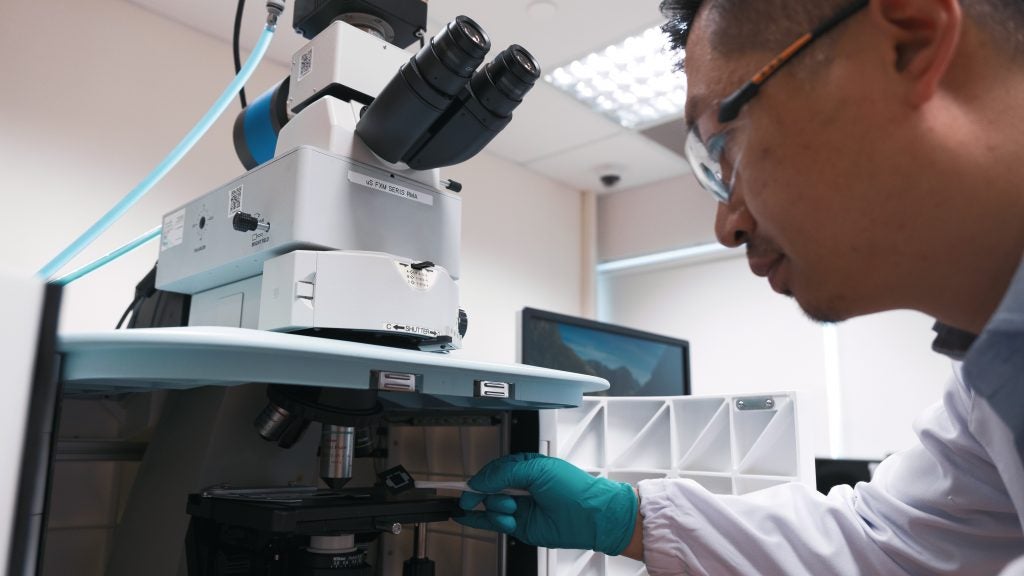
In the drive to build a greener and more sustainable net zero economy, developing innovative ways to turn waste from a costly burden into a valuable resource is key. For Assistant Professor Iris Yu (Civil and Environmental Engineering) one of the most promising – and most pressing - forms of waste for generating value is food waste.
“Food waste in Singapore is a significant issue, both in terms of the sheer quantity we generate and the environmental impact it causes,” she says. “But also, we believe, because of its untapped value.”
According to the National Environment Agency, Singapore produced 755,000 tonnes of food waste in 2023. The figure represents a slight dip on the previous year, partly due to recent policy measures, but still accounts for around 11 per cent of the nation’s total waste generated.
“Imagine transforming this massive waste stream into something valuable and sustainable,” says Asst Prof Yu. “That’s the potential we want to tap into.”
With a PhD in environmental engineering, Asst Prof Yu’s research interests focus on upcycling food waste into so-called platform chemicals - basic building blocks used to produce a wide range of industrial products - as alternatives to traditional, carbon-intensive petroleum-based products.
In 2023, shortly after joining NUS, her research efforts earned her recognition on the MIT Technology Review’s Innovators Under 35 Asia Pacific list. This annual list recognises young scientists, entrepreneurs, and other individuals who are making outstanding achievements and contributions to advancing science and technology.
Decarbonisation goals
Commonly discarded in landfills or incinerated with other waste, food waste disposal has severe environmental impacts. When food waste decomposes in landfills it releases methane, a greenhouse gas almost 30 times more potent than CO2. Incinerating food waste also produces carbon emissions and other pollutants, degrading air quality and contributing to climate change.
Despite policies to minimise food wastage achieving some success, novel and scalable solutions to treat food waste are urgently needed for Singapore to meet its decarbonisation goals.
One promising project Asst Prof Yu and her research team are working on is developing a process that uses microwaves and microalgae to turn food waste into valuable products. By applying low-energy microwave pulses to food waste rich in starch and sugars, the researchers found that the resulting mixture can be used to grow microalgae.

“Microalgae are fast-growing microscopic single-celled organisms that are highly efficient at absorbing CO2,” explains Asst Prof Yu. “Like plants, they perform photosynthesis, using light to convert carbon dioxide and water into oxygen and energy-rich carbohydrates. They grow and build up proteins and lipids, which can then be harvested for producing biofuels, animal feed, nutritional supplements, and other valuable bioproducts.”
The technology Asst Prof Yu’s team is developing focuses initially on waste rich in starch and sugars, which is easier to break down or can be utilised directly; and waste from industrial sources, which is easier to separate out than waste from domestic or commercial sources. This can include: discarded potato, unsold or stale bread, leftover rice or pasta, and sugar-containing wastewater from juice manufacturing.
“The treatment process is effectively similar to how your meals are cooked in a conventional domestic microwave oven, and we add only water rather than any acids or other toxic chemicals to keep the process as clean as possible,” says Asst Prof Yu, “However, our microwave reactors are more controlled than conventional ovens, operating at a constant temperature that allows us to break down the food waste efficiently into a soluble form, using low energy.”

Circular economy
Asst Prof Yu’s research team says their integrated microwave-microalgae technology has strong potential to address waste management and deliver a sustainable method of turning waste into high-value products, helping to foster a circular economy. By diverting food waste from landfills and incinerators, they say this technology could substantially reduce greenhouse gas emissions associated with waste disposal.
Whilst their research is currently in the lab phase, the team says there is still significant work to be done. They are identifying the best types of microalgae for consuming different food waste, as well as pinning down the factors that help or hinder this process when using microwaves. Going forward the researchers also hope to expand the process to cover cellulose-containing food waste, which is harder to break down than starch-rich waste. The cellulosic waste could be fruit and vegetable peels and husks and even spent grains from brewing.

“Food waste is not just an environmental problem, it is also a challenge to the market and economy, “ says Li Zhuo, a PhD student who is part of the research team working with Asst Prof Yu.
“The current practice represents a significant inefficiency because of the resources used to produce food that is never consumed. At the same time, transporting and disposing of food waste incurs substantial costs, representing a failure to realise the full economic value of the food produced. Through our research we’re looking to transform not just how we handle waste, but also to rethink what we perceive and consider as ‘waste’ and instead reclaim its value.”





